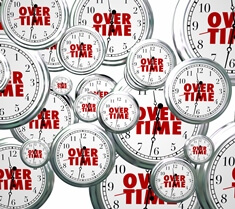Employment Law
What Is the Difference Between Being Classified as an Employee versus an Independent Contractor?
Employers sometime seek to misclassify workers as independent contractors to avoid withholding taxes, paying social security, providing unemployment insurance and workman’s compensation benefits. Massachusetts has some of the most stringent laws in the country governing the classification of workers and presumes that a worker is an employee. A company or business who classifies someone as an independent contractor can rebut this presumption only by meeting all three requirements under the Massachusetts Independent Contractor Law, M.G.L. c. 149, §148B. Those three requirements are as follows:
(1) that the worker is free from its control and direction in performing the service, both under a contract and in fact;
(2) that the service provided by the worker is outside the employer’s usual course of business; and
(3) that the worker is customarily engaged in an independent trade, occupation, profession or business of the same type.
Unless all three prongs are met, a worker is considered an employee, and thus may be entitled to employee benefits, including, in some instances, holiday pay, vacation pay, minimum wage and overtime benefits. If it is proven at trial that an employee has been misclassified, such person would also be entitled to treble damages and attorney’s fees.

Shehzad Rajwani
Principal Attorney
PHONE: 508-393-9244
EMAIL: srajwani@harborlaw.com
Shehzad Rajwani is an employment and business litigation attorney.
Shehzad Rajwani is an employment and business litigation attorney. His practice focuses on employment litigation in Massachusetts and federal courts as well as proceedings at the Massachusetts Commission Against Discrimination and the United States Equal Employment Opportunity Commission. Mr. Rajwani’s practice also includes representation of clients in litigation and arbitration proceedings involving partnership disputes, breaches of contract and tortious interference with contract claims and other business torts, as well as claims brought under Chapter 93A, the Massachusetts Consumer Protection Statute.
Find out more about issues in our related practice areas
Intellectual Property Law
Insights, opinions and decisions you should know about

Understanding the Massachusetts Prevailing Wage Law’s Potential Impact on Employers, Employees, and Contractors
The Massachusetts Prevailing Wage Law (“Prevailing Wage Law”) for public works projects establishes the minimum wage rates that must be paid to laborers on various public projects. Public construction projects can include, among other things, additions and alterations...

Department of Labor Raises the Salary Threshold for the Overtime Exemption
On May 18, 2016 the Department of Labor updated the salary requirements for the executive, administrative, and professional overtime exemptions under the Fair Labor Standards Act (“FLSA”). The new rule, which goes into effect on December 1, 2016, raises the...

Overtime Requirements, Independent Contractor Classification, and Safe Practices for Massachusetts Businesses
By Shehzad Rajwani and Lucia Passanisi In our practice representing both businesses and employees, we regularly see reoccurring issues when it comes to wage and hour violations. Often well-meaning employers find themselves defending a lawsuit with the potential for...

Ready, Set, Comply: The Massachusetts Earned Sick Time Law is in Effect
The Massachusetts Earned Sick Time Law, which became effective on July 1, 2015, now allows eligible employees to accrue and use sick time. What employers/employees are covered by the earned sick time law? Under this law, covered employers include individuals along...
Get in touch with us.
Learn more about how we can help.